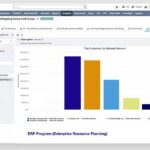The Best Fluffy Pancakes recipe you will fall in love with. Full of tips and tricks to help you make the best pancakes.
Introduction to Business Intelligence Requirements
Business intelligence requirements are the set of specifications and criteria that define the data and functionality needed to meet the business objectives of an organization. These requirements are essential for businesses looking to implement a BI system or improve their existing one. They help identify the key performance indicators (KPIs) that the business needs to measure and track to achieve its goals.

Why Business Intelligence Requirements are Important
BI requirements are critical to the success of any BI project because they help ensure that the system delivers the expected value to the organization. They enable businesses to:
- Identify the data sources they need to collect and integrate to gain insights into their operations
- Define the metrics and KPIs they need to track to monitor their performance and make informed decisions
- Determine the functionality and features they require to meet their business objectives
- Ensure that the BI system is aligned with the organization’s strategic goals and objectives
Types of Business Intelligence Requirements
There are different types of BI requirements that organizations need to consider when developing a BI system. These include:
Functional Requirements
Functional requirements describe the specific features and capabilities that the BI system must have to meet the business objectives of the organization. These include:
- Reporting: The ability to generate reports and dashboards to visualize and analyze data
- Analysis: The ability to perform ad-hoc analysis and drill down into data to uncover insights
- Data integration: The ability to collect, transform, and integrate data from different sources
- Data visualization: The ability to present data in a visually compelling way to facilitate understanding
- Forecasting: The ability to predict future trends and patterns based on historical data
- Collaboration: The ability to share and collaborate on insights across the organization
Non-Functional Requirements
Non-functional requirements describe the performance, security, and usability characteristics that the BI system must have to meet the needs of the organization. These include:
- Performance: The system must be fast and responsive to enable users to analyze and visualize data quickly
- Security: The system must be secure and protect sensitive data from unauthorized access or breaches
- Scalability: The system must be able to handle large volumes of data and users without performance degradation
- Usability: The system must be easy to use and intuitive, with a low learning curve for users
Business Requirements
Business requirements describe the business objectives and goals that the BI system must support. These include:
- Revenue growth: The system must help identify new revenue streams and opportunities to grow the business
- Cost reduction: The system must help identify cost-saving opportunities and optimize resource allocation
- Customer satisfaction: The system must help improve customer satisfaction by identifying customer needs and preferences
- Operational efficiency: The system must help optimize operational processes and reduce waste and inefficiencies
How to Identify Business Intelligence Requirements
Identifying BI requirements is a critical step in developing a BI system that meets the needs of the organization. Here are some steps to follow:
Step 1: Define the Business Objectives
Start by defining the business objectives that the BI system must support. These could include revenue growth, cost reduction, customer satisfaction, or operational efficiency.
Step 2: Identify the Key Performance Indicators (KPIs)
Identify the KPIs that the business needs to measure and track to achieve its goals. These could include financial metrics, customer satisfaction scores, or operational metrics.
Step 3: Determine the Data Sources
Determine the data sources that the BI system must collect and integrate to provide the insights needed to achieve the business objectives. These could include internal data sources such as sales data, inventory data, and customer data, as well as external data sources such as social media data, market data, and weather data.
Step 4: Define the Functional and Non-Functional Requirements
Based on the business objectives and data sources, define the functional and non-functional requirements that the BI system must have to meet the needs of the organization. This could include reporting capabilities, data visualization features, performance requirements, and security measures.
Step 5: Prioritize the Requirements
Prioritize the requirements based on their importance to the business objectives and the organization’s overall strategy. This will help ensure that the BI system delivers the maximum value to the organization.
Conclusion
Business intelligence requirements are essential for businesses looking to implement a BI system or improve their existing one. By identifying the data and functionality needed to meet the business objectives of an organization, BI requirements help businesses gain insights into their operations, make better decisions, and stay ahead of the competition.
FAQs
- What is a BI system? A BI system is a software system that enables businesses to collect, integrate, and analyze data from different sources to gain insights into their operations and make better decisions.
- Why are BI requirements important? BI requirements are important because they help ensure that the BI system delivers the expected value to the organization by identifying the data and functionality needed to meet the business objectives.
- What are the different types of BI requirements? The different types of BI requirements include functional requirements, non-functional requirements, and business requirements.
- How do you identify BI requirements? To identify BI requirements, you need to define the business objectives, identify the KPIs, determine the data sources, define the functional and non-functional requirements, and prioritize the requirements.
- What is the importance of prioritizing BI requirements? Prioritizing BI requirements is important because it helps ensure that the BI system delivers the maximum value to the organization by focusing on the requirements that are most important to the business objectives and the organization’s overall strategy.



